Occupy Central
Occupy Central is a civil disobedience movement which began in Hong Kong on September 28, 2014. It calls on thousands of protesters to block roads and paralyse Hong Kong's financial district if the Beijing and Hong Kong governments do not agree to implement universal suffrage for the chief executive election in 2017 and the Legislative Council elections in 2020 according to "international standards." The movement was initiated by Benny Tai Yiu-ting (戴耀廷), an associate professor of law at the University of Hong Kong, in January 2013.
Umbrella Movement
The Umbrella Movement (Chinese: 雨傘運動; pinyin: yǔsǎn yùndòng[1]) is a loose political movement that was created spontaneously during the Hong Kong protests of 2014.[2] Its name derives from the recognition of the umbrella as a symbol of defiance and resistance against the Hong Kong government, and the united grass-roots objection to the decision of the Standing Committee of the National People's Congress (NPCSC) of 31 August.
The movement consists of individuals numbering in the tens of thousands who participated in the protests that began on 28 September 2014, although Scholarism, the Hong Kong Federation of Students, Occupy Central with Love and Peace, groups are principally driving the demands for the rescission of the NPCSC decision.
The movement consists of individuals numbering in the tens of thousands who participated in the protests that began on 28 September 2014, although Scholarism, the Hong Kong Federation of Students, Occupy Central with Love and Peace, groups are principally driving the demands for the rescission of the NPCSC decision.
OCCUPY CENTRAL - DAY 73: Full coverage of the day’s events
Legco may seek injunction to clear Occupy protesters from complex: Jasper Tsang
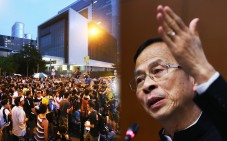
The Legislative Council may seek a court injunction to clear the protesters occupying parts of the Legco complex, Legco President Jasper Tsang Yok-sing said on Monday.
The final push: police finalise plans to clear Hong Kong streets of Occupy protesters
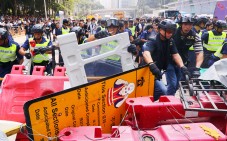
More than 3,000 police officers could be deployed to clear the biggest Occupy camp in Admiralty and the protest zone in Causeway Bay on the same day this week, according to police sources.
Lack of political upward mobility is the real problem

Political activism by young people in Hong Kong is often explained as a conflict between an older generation primarily interested in economic comforts and a younger generation more concerned with democratic ideals and social justice.
‘Pack up and go’, Occupy protesters warned ahead of major clearance operation at 9am on Thursday
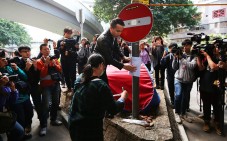
Protesters should pack up their things and leave the Occupy camp in Admiralty before a clearance begins on Thursday morning, lawmaker Paul Tse Wai-chun said.
Mapping out the protest sites for history
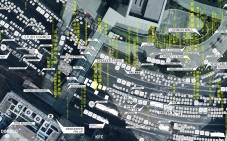
The spot where the tear gas was fired, the tent villages, the post-it note wall and study corner are all among the landmarks that will go into a mapping project aimed at documenting the growth of the Occupy Central sites.
A city divided

Take down your yellow or blue ribbon profile pictures from Facebook if you want to mend the deepening rift in society.
Hong Kong police now less popular than China's PLA, after Occupy clashes
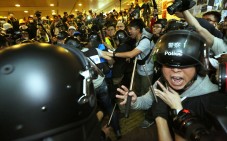
The police are the least popular among the main disciplined services in the city, and rank lower than the People's Liberation Army in terms of public satisfaction, according to a poll.
Occupy protests may be ending, but the grievances won't go away
Philip Yeung says many of the problems can be traced back to Donald Tsang's disastrous policies
PUBLISHED : Tuesday, 09 December, 2014, 10:21am
Hong Kong is crying out for a compassionate and competent leader. Whatever happens to constitutional reform, we don't deserve another Donald Tsang. Photo: Reuters
By now, popular support for the Occupy Movement has melted away. After two noisy months, its chokepoints have exacted a painful price on the retail and transport sectors. The tide is turning.
When it began, some cab drivers would ferry passengers to the occupied areas for free - until the occupation began to eat into their livelihood.
Tactically, the government's approach of waiting it out has worked. Student organisers, seeing the writing on the wall, have resorted to increasingly desperate moves to keep the movement alive. Scholarism's Joshua Wong Chi-fung, who tasted victory in the campaign against national education, is eager for an encore. But the government won't budge, and Wong can't win.
But the government cannot afford to gloat. The ugly factors that have fuelled the movement are still festering.
It is good to see that the Commission on Poverty has swung into action to address social grievances. Livelihood-obsessed Hongkongers are notoriously apolitical. They may not hanker for messy democracy per se, but they do yearn for good government and a fair society.
People returning from living overseas lament the loss of the old Hong Kong, celebrated globally as the most freewheeling place on earth for entrepreneurship. A decade of pampering the super-rich has tilted the scales against the rest of society.
Former chief executive Donald Tsang Yam-kuen, known for hobnobbing with tycoons, is as notorious for his expensive wine collection, sold upon leaving office, as he is for a series of disastrous moves that fundamentally altered our universe. He suspended land auctions, discontinued the building of public housing and curtailed the construction of the Home Ownership Scheme, artificially driving up property prices well beyond the reach of the middle class.
While decrying Hong Kong's narrow tax base, Tsang's government nevertheless saw fit to drop the import duty on wine, rescinded the inheritance tax, cut profit tax rates, and gifted custody of the Mandatory Provident Fund to banks and financial institutions. With rent spiralling out of control, every budding entrepreneur is now working for their landlord.
Years ago, the government used to sing the tune that young people should go into business for themselves. But these days, who can afford to? Most commercial leases run for three years - the first year is a money-loser; the second, a break-even year. By the third year, at the first sign of profitability, the landlord slaps an obscene rent hike that drives people out of business. The entrepreneur's dream is no more.
In the sad satellite towns of Tuen Mun and Tin Shui Wai, government town planners failed to include wet markets which would have provided hundreds of jobs for local residents trapped in poverty, forcing them to pay through the nose at one of two tycoon-owned supermarkets.
School social workers will tell you that many students from poor but proud families have never been to Central, much less occupied it, as they can't even afford the bus fare into the city. These are the lost souls in this filthy-rich city, where wealth disparities are among the most severe in the world.
While mainlanders are busy chasing the China Dream, the Hong Kong Dream is dead, killed by self-serving and short-sighted decision-makers. Job creation schemes for young people won't be much of a cure or correction. Having a job that barely keeps the wolf from the door can hardly qualify as upward social mobility. Who can see a future living in an exploited city touted as having the freest economy in the world, but that is, in fact, a pseudo-free market - free for business tycoons, but not for the rest of us?
No anti-poverty measures can work without factoring in rental affordability, both residential and commercial. Perhaps the government should go on a hawker licence issuing spree to give the young and poor a new lease of life, to break the near-monopoly of big businesses. At least they can operate rent-free. This city must find its old magic when even street hawkers and itinerant vendors could climb out of poverty. We need deliverance from rental slavery.
Education was once a path out of poverty. But the poor have been priced out of quality schools. A dysfunctional school curriculum unanchored by a study of history is now reaping the bitter fruit of a generation of youngsters ignorant of their own country, and indifferent to the world. Despite their activism, the youthful protesters are trapped in their own narrow corner, unconcerned about the past and unprepared for the future. They are misfits within a rising China and a shrinking world.
Hong Kong is crying out for a compassionate and competent leader. Whatever happens to constitutional reform, even if we can't get a Lee Kuan Yew, we don't deserve another Donald Tsang.
Philip Yeung is a former speechwriter to the president of HKUST and co-founder of the Hong Kong Society for the Promotion of English.PKY480@gmail.com
This article appeared in the South China Morning Post print edition as Occupy protests may be ending, but the social grievances won't go away
Hong Kong youth should seize the opportunities there for the taking
Jeffrey Lam says it's up to our young people to fulfil their potential
PUBLISHED : Tuesday, 09 December, 2014, 1:00pm
The current social and political situations do not warrant methods of change whereby everyone has to pay a high price. Photo: Bloomberg
Walking past the Occupy Central site in Admiralty, one can easily find banners around the site decrying soaring property prices and a growing wealth gap, which reflect some of the grievances of the protesters.
Some believe a reconstruction of the political system will encourage public participation in policymaking. But I doubt the global phenomenon of the widening wealth gap can be solved by so-called "genuine" universal suffrage.
At the outset of the movement, protesters' disruption of social order in the guise of "civil disobedience" - not to mention their idealistic attitudes towards democracy - justified their illegal actions and won sympathy. However, recent public opinion polls show that more than 80 per cent of respondents want the protesters to leave the streets.
The two-month-long occupation has failed to earn support from the majority of Hong Kong people because we do not support action that breaks the law, and believe the current social and political situations do not warrant methods of change whereby everyone has to pay a high price. The protests resulted in inconveniences to residents and businesses, ongoing clashes between protesters and police, as well as a potential long-term economic impact.
In any movement, protesters have to shift tactics when the majority is not on their side. Political change cannot be achieved by occupying roads or blocking the entrances to government headquarters. Some are not happy with the National People's Congress Standing Committee decision, but any suggestion has to be in line with the Basic Law. In their attempt to solve our social problems, the protesters' radical plan to reconstruct the political system is not the right way.
Meanwhile, the government should think out of the box. For instance, it should co-operate with developers to build small and medium-sized flats for younger people to rent or buy. It should also rezone 2 to 3 per cent of green-belt areas for housing development.
It is understandable that young people are concerned about missing out on opportunities, and about the cost of living and lack of upward mobility. However, they are in a better position than the previous generation like us, most of whom were pioneers who came from Guangdong to Hong Kong with almost nothing. The business environment was rough.
We understand the importance of a good environment. That's why we suggested that the government set up a HK$5 billion fund to provide youths with training and resources, to equip them with the skills needed to succeed as entrepreneurs.
Hong Kong has more resources today than before, including free education for all. And the opportunities of a globalised world are there for the taking. With technology advancing at a rapid pace, today's successful people are not necessarily those born with a silver spoon in their mouths. Many started from scratch, like Jack Ma Yun and the late Steve Jobs.
Those unable to enter the university system also need to change their mentality that universities are the only route to success. The government has improved Hong Kong's apprenticeship and internship programmes for vocational education. These can prepare young people for decent jobs that support key industries, such as aviation, logistics and emerging sectors such as IT and green construction.
Motivation is most important. The government continues to find ways to help young people prepare for the opportunities they need to fulfil their potential.
And how about you, young people? Can you live up to that potential?
Jeffrey Lam Kin-fung is a legislative councillor in the commercial (first) functional constituency
This article appeared in the South China Morning Post print edition as Youth must seize opportunities there for the taking in HK
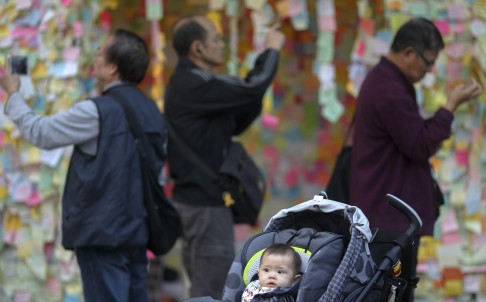
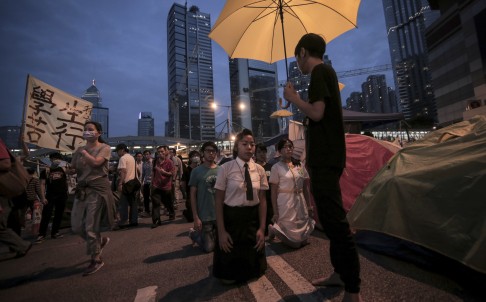
沒有留言:
張貼留言